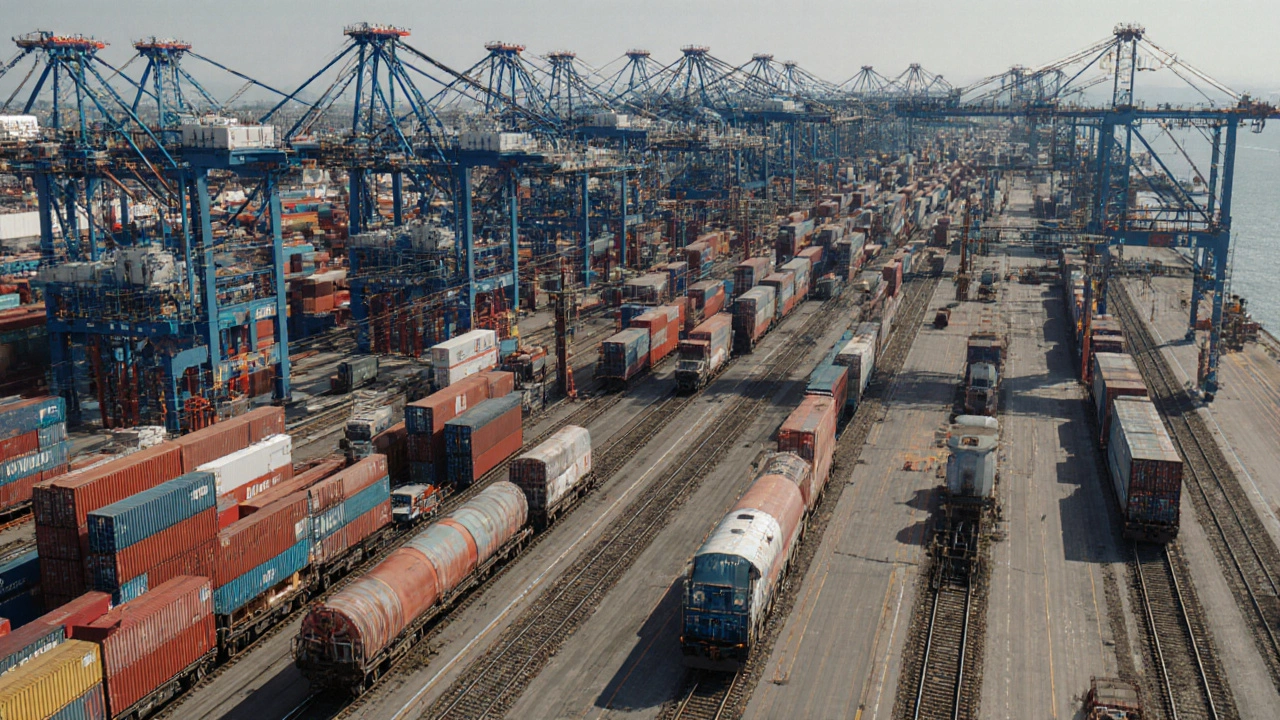Port of Barcelona – A Hub that Connects Africa and Europe
When talking about the Port of Barcelona, the busiest Mediterranean gateway in Spain, handling millions of tons of cargo and thousands of cruise passengers each year. Also known as Barceloneta Port, it serves as a crucial link between African exporters and European markets, offering deep‑water berths and state‑of‑the‑art facilities.
The Mediterranean Sea, a strategic inland sea that binds three continents, fuels the bulk of the port’s traffic. Its calm waters and central location enable the Port of Barcelona to host a diverse mix of container ships, bulk carriers and ro‑ro vessels. Because the sea connects North Africa, the Middle East and Western Europe, any shift in regional trade policy instantly ripples through the port’s schedules.
On the tourism side, the cruise industry, a multi‑billion‑dollar sector that relies on well‑equipped ports for passenger embarkation and disembarkation finds a natural home here. Each summer the port welcomes over a dozen cruise lines, turning Barcelona into a gateway for travelers heading to the Balearics, the French Riviera or even the Canary Islands. That flow of tourists brings retail, hospitality and local employment boosts that ripple far beyond the waterfront.
The port’s success hinges on its reputation as a logistics hub, an intermodal nexus where sea, rail and road converge for seamless cargo movement. Advanced gantry cranes, automated guided vehicles and a rail link to the European high‑speed network cut transit times for African exporters shipping coffee, minerals or textiles to Europe. Without this hub, many African firms would face higher freight costs and longer lead times.
Environmental stewardship is no longer an afterthought. The port runs a comprehensive green program that includes shore‑power for docked ships, waste‑water treatment upgrades and electric vehicles for internal transport. These steps reduce emissions, helping the port meet EU climate targets while keeping the surrounding city breathable for locals and visitors alike.
Economically, the Port of Barcelona supports over 70,000 jobs directly and indirectly, from dockworkers to logistics analysts. Its tax contributions fund Catalan infrastructure, education and health projects, illustrating how a single maritime gateway can shape regional prosperity. When African trade agreements expand, the port’s role in job creation and GDP growth only intensifies.
Looking ahead, the port is investing in digitalisation and “smart port” technologies. IoT sensors monitor container locations in real time, AI predicts peak traffic, and blockchain pilots aim to streamline customs clearance. These innovations promise faster turnaround for African shipments and smoother experiences for cruise passengers, keeping Barcelona competitive against other Mediterranean rivals.
Below you’ll find a curated mix of stories that touch on these themes – from sports events that rely on efficient freight services, to political moves affecting African trade routes, and tech breakthroughs that could reshape how the port operates. Dive in to see how the Port of Barcelona influences daily life, global commerce and the future of African‑European connections.
Barcelona Port Opens Direct Freight Rail to France, Slashing Transit
By Sfiso Masuku On 5 Oct, 2025 Comments (12)

Barcelona's port launches a historic direct freight rail link to France, cutting transit times by up to 12 days and boosting cross‑border trade.
View More




